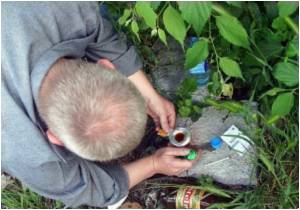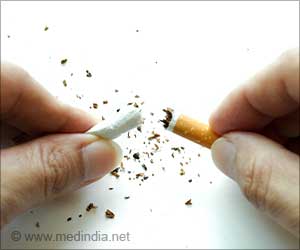Faulty signaling in the brain's reward system causes addiction problems, reveals research.

This pleasure arises when certain signal substances, primarily dopamine, are released in the brain.
But this reward system can be "kidnapped" by other rewarding substances, such as alcohol and abuser drugs like cocaine.
They provide feelings of reward initially, but they are so strong that nerve cells in the system are rewired, and addiction occurs. More natural substance, such as food rich in sugar, can also produce addiction-like conditions.
Researchers from the Uppsala University and their colleagues have recently shown that dopamine cells in the reward system can send signals in cooperation with glutamate, so called co-signalling. However, its physiological role was not previously known.
In studies of mice that lack the ability to send the above signals because their glutamate transporter, so-called VGLUT, has been inactivated, the scientists studied how prone the mice were to ingest sugar and cocaine.
Advertisement
They found that mice that lack the ability to co-signal developed dramatically improved memory of environments that could be associated with the ingestion of drugs.
Advertisement
"Our data indicate that the brain becomes hypersensitive to rewards when this co-signalling of glutamate and dopamine does not function. Lower doses than normal are enough to increase the propensity to ingest the substance, and this is true of both sugar and cocaine," said Asa Mackenzie, associate professor of neuroscience at Uppsala University, who led the study.
Source-ANI















